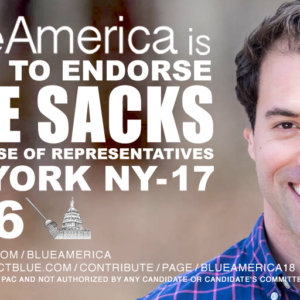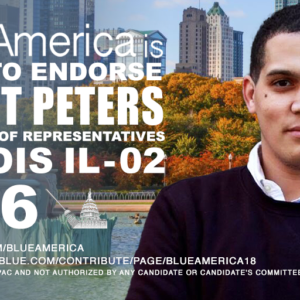Even if you’re not a TV aficionado you’ve probably gathered enough from the zeitgeist to know the story of Jamie Oliver, the Naked Chef, and Huntington, West Virginia, America’s most obese city. Celebrity chef goes to the country’s fattest town to teach the kids– and their parents– about good nutrition; he doesn’t get lynched, but most of the people of Huntington aren’t interested in his advice. Three months after the show, Jamie returned to Huntington to discover:
• That beleaguered bureaucrat Rhonda was unable to cope with the government-ordered processed food supply that was piling up while the school systems’ various cook staffs used Jamie’s fresh-food recipes. So she instituted “Processed Food Friday” as a way to unload all the excess french fries and chicken nuggets down the gullets of the children. Oh yeah, and Jamie’s bete noire (vache noire?)– chocolate milk– is back in the cafeteria hand-out bins.
• Parents, apparently either sick of hearing their kids whine about having to eat veggies at school or sick of Jamie’s British accent honking on about health, started increasing the number of bag-lunches with which they sent their kids to school. Oliver asks one small child to show him the lunch her deeply caring parent prepared so lovingly for her: potato chips and jelly beans. Another kid is eating out of a bag of McDonald’s food. Says Oliver with snorting indignation, “Even makin’ an old-fashioned sandwich is out of fashion now!”
• Also dismaying: Jamie learns that, once Food Revolution began airing on ABC, Alice– the tough-minded cafeteria cook who was quite sensibly skeptical of Oliver’s promises initially– got a lot of hate mail from people around the country. Can you believe that? It’s one thing to disagree with a citizen you see on TV, but hate mail?
In the end, what was most admirable about Jamie Oliver’s Food Revolution is that it didn’t try to tidy up the complexities surrounding his simple fresh-is-good message. The people Oliver dealt with were frequently hamstrung by state or federal laws about what could and could not be provided to the school system or served there. And there’s also the problem you don’t have to explain to anyone who’s ever taught in a public school or attended a school-board meeting: As Jamie puts it, “Everyone is obsessed with not upsetting the parents.” The result: a combination of pushiness and spinelessness that ends up, in this case, making the good food program difficult, if not impossible, to implement.
Jared Polis (D-CO) over for a chat today. We ran into him at a friend’s house about a month ago and we were fascinated by a bill he had introduced, H.R. 4870, the Healthy School Meals Act. He’ll be joining us below, in the comments section, for a discussion of the bill and the ramifications of the obesity epidemic. Epidemic? You bet— and worse. The Pentagon is complaining that the have an exploding manpower shortage based on obesity and it’s actually turning into a serious national security threat.
Health care experts, including two former U.S. Surgeons General, said on Wednesday said that obesity has reached epidemic proportions and is a threat to security in the United States and abroad.
“Obesity is not just a health issue,” said Richard Carmona, who served as surgeon general in the George W. Bush administration. Carmona is now with the Strategies to Overcome and Prevent Obesity Alliance (STOP), a coalition of consumer, government, labor, business, and health insurers that advocate “innovative and practical strategies” to combat obesity.
Obesity “affects our national and global security,” said Carmona. He said the U.S. has reached a “tipping point,” at which obesity “now impacts every aspect of our society, including the future of our health system.”
Obesity is crippling individuals and hurting American families, the workforce – even work productivity and the nation’s ability to be prepared for natural and manmade disasters: “When we look at one of the top reasons why young men and women fail to be retained on active duty in our uniformed services, obesity again rises to the forefront at a time when we need them more than ever.”
Jeffrey Levi, executive director of the Trust for America’s Health, a disease-prevention advocacy group, echoed Carmona’s concern about obesity, the military and national security.
“I want to pick up on something Dr. Carmona said about the growing problem of obesity, and this being one of the major causes of medical discharge from the military and how this is a national security issue,” Levi said. “Back in the ‘60s, one of the things that motivated Lyndon Johnson to support the Medicaid program — and in particular the enhanced children’s health benefit within Medicaid — was his shock that so many young men were being rejected for service in the military because they were underweight.
“And here we are, 40 years later, in a situation where we have quite the opposite problem,” Levi said. “So it’s a certain irony, but I think it underscores that this has to be something integrated into our discussion of health reform.”
And that brings us to Jared’s bill which aims to bring the option of school kids eating some plant-based food at school meals. Jared isn’t a vegan or even a vegetarian. He just wants to make sure that children have a choice, noting that in the past 30 years “the prevalence of overweight in children ages 6 to 19 has tripled and 1 in 5 is struggling with obesity and related conditions like type 2 diabetes, hypertension, and heart disease, which were previously considered adult diseases.”
His legislation is based on the fact that children consume too much fat, saturated fat and sodium and don’t get enough fiber, whole grains, fruits or vegetables and that research shows that children who eat school-purchased lunches are more likely to be overweight and obese, and less likely to eat enough fruits and vegetables. So what does the bill do?
Improves children’s eating patterns by encouraging the inclusion of healthful plant-based
options in the National School Lunch and Breakfast Programs.
Introduces plant-based foods to schools, increases their availability and affordability, and provides incentives for schools to provide healthful entree options in the lunch line.
Removes restrictions on providing nondairy milk alternatives with school lunches, thus ensuring that all children receive vital nutrients.
I asked Jared if there were any bad guys in this story– some crackpot Republicans or evil food processing corporations. So far, not, he says. Some time ago I was the general manager of Sire Records and one of our artists, k.d. lang, recorded the TV ad below. The cattle and meat processing industries came down on us like a ton of bricks. I’ve read that they do the same thing to schools that start vegetarian-oriented programs, even if it’s just to offer a vegetarian option once a week. I hope that doesn’t happen to Jared and to his bill. He asked me to encourage anyone interested in this and the other issues he’s active in– especially immigration reform– to follow him on twitter– jaredpolis— and, in fact, anyone who signs up to follow him today, get a chance to win a free and rare k.d. lang promo-only CD for the songs “After the Gold Rush” and “Love Is Everything.”
https://www.youtube.com/watch?v=5EVGTX0-Jj4








Comments